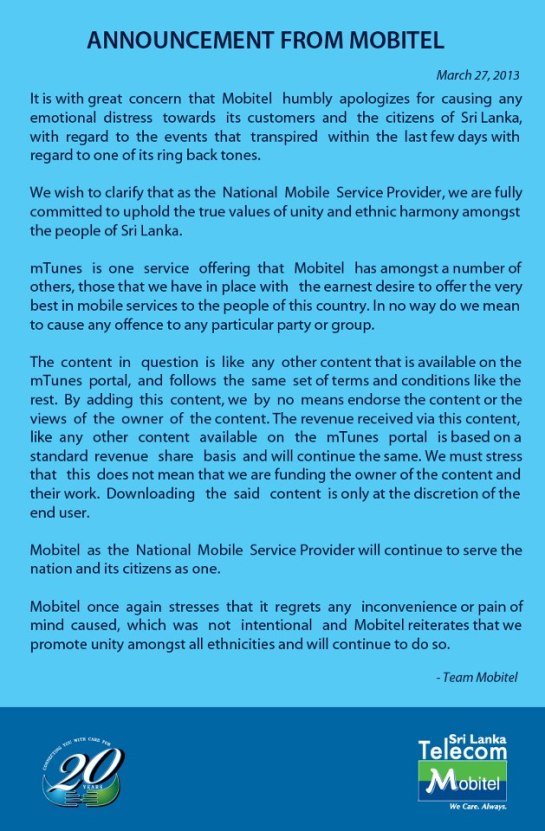Picture by Sanjaya Senanayake
ප්රශ්න නැතිවට ප්රශ්ණ is an old famous Sinhalese saying. The creation of problems because of shortage of problems in other words. The mysterious case of the ‘Humber’ dates smacks of just this. Unearthed at Cargills, Sri Lanka’s largest supermarket chain’s, now apparently racist, shelves their presence was first alerted (to me at least) by the ever watchful Sanjaya Senanayake.
The word ‘Hamba’ or ‘හම්බ’ certainly smacks of a racist slur. It’s been used enough of times in recent hate campaigns by the Bodu Bala Sena and affiliated groups to bring it permanently out of the rather murky folds of history it had retreated to, giving way to the more civilized slur (if such a thing exists) ‘Thambiya’ (read my post on their origins here).
Anyway, after months and months of racism and hate speech against Muslims in Sri Lanka from a small but loud minority of extremists/jingoists, where we saw everything ranging from attacks against Halal certification, the hijab, animal slaughter, non-existent sharia laws and fictional terrorists in the East, things had finally seemed to subside. And now this happens.
It is not clear yet what form of contraceptives these dates carry, if any, and precisely what age group of Muslim girls’ wombs they threaten, of what bodily organs of Muslim children unlucky enough to eat them. But these darn Humber dates are threatening to inject a new wave of paranoia into what many was hoping were steadying race relations in Sri Lanka.
I jest of course, no one is claiming the Humber dates are lethal to a specific ethnic group yet (strangely enough, only No Limit has so far succeeded in developing confectionery with such precise targeting), but eyebrows are being raised, ears are being perked, there is something in the air again. Epic fail, subtle racism or attempted mass murder?
Vikalpa has tried to get to the bottom of it. But with no results.Their calls have been ignored, and aside from a single name, Cargills has so far been mum on the suppliers. Very strange indeed.
මේ බිහිසුනු බව නිසාවෙන්ම එම නිශ්පාදනය අලෙවි කරන කාගීල්ස් ෆුඩ් සීටී ප්රධාන කාර්යාලයට ඇමතු අතර පැයකට ආසන්න කාලයක් උත්සහ කළ මුත් සාධනීය ප්රතිචාරයක් අපට ලබා ගත හැකි වූයේ නැත. ‘රටගැන හිතන, ඔබ ගැන හිතන‘ වැනි අසිරිමත් ආදර්ශ පාඨයන් අසමින් දුරකතනය තුළ පැයකට ආසන්න කාලයක් රස්තියාදු කරමින් අපට ලබා දුන්නේ එම නිශ්පාදනය ෆුඩ් සිටී ආයතනයට ලබා දුන් තැනැත්තාගේ නම පමණය. නමුත් අප කල්පනා කරන්නේ වෙළද ආයතනයකට, එයට එහා ගිය, සමාජ වගකීමක් ද ඇති බවය.
For now i’m inclined to agree with Sanjaya and go with the ‘it was an epic fail’ conclusion, though Groundviews remains vigilant to alternative possibilities. For one thing the spellings, ‘Humber’ smacks more of an English Lord than a coastal Moor. The ‘er’ at the end brings it. A packager’s attempt at adding some refinement to the brand perhaps? completely failing due to a lack of cultural awareness and utter ignorance? Or a sinister attempt at a subtle disguise and fallback excuse? And Cargills hedging and dodging the matter could be a simple case of PR paralysis. Sri Lanka isn’t alien to those.
Sermons at the mosque, to me, are a good indicator of the levels of prranoia and fear among Muslims and consequently the intensity of the racism out there. When this whole thing started, it took a couple of months for the ulama to start talking about it in Friday sermons, advising and cautioning the community. Now with most of the extreme voices dying down, preaching is back to timely topics such as Ramadan and exhortations to be better Muslims.
people are still very raw and sensitive however, I hope this blows over soon. Ramadan kareem everyone.










